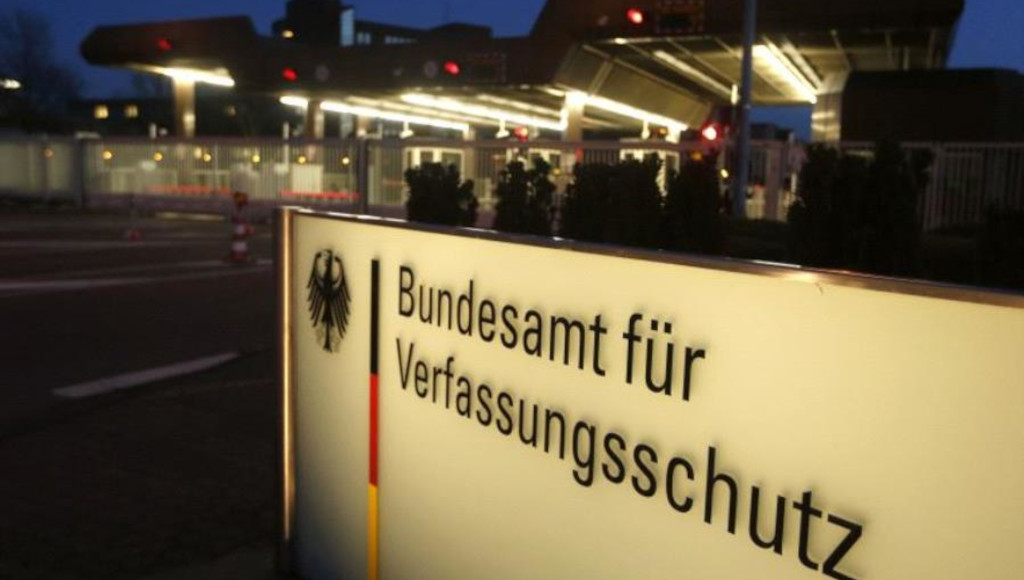The Republic of Turkey was one of five main countries actively engaged in espionage activities in Germany in 2022, Deutsche Welle Turkish service reported on Tuesday, citing a report by Germany’s Federal Office for the Protection of the Constitution (BfV).
The other countries grouped with Turkey were the Russian Federation, the People’s Republic of China, the Islamic Republic of Iran and North Korea.
The assessment was included in an annual report for 2022 by BfV –- the country’s domestic security agency -– which was made public by Interior Minister Nancy Faeser and BfV President Thomas Haidenwang on Tuesday.
The BfV warned against the risk of an “aggressive Russian espionage operation” as Moscow wages its full-scale war on Ukraine, saying that Western sanctions against Russia and their support for Ukraine’s military efforts meant the Kremlin had an “increased interest” in information gathering.
“In times of war the leadership in the Kremlin relies on the work of the Russian intelligence services,” Faeser said during Tuesday’s press meeting.
Both Iran and Turkey were focused on individuals and groups considered to be part of the political opposition to the government, the BfV’s 2022 report said.
Turkish intelligence services and security authorities are described by the report as the “central entities within the Turkish state apparatus” that serve the Turkish government, President Recep Tayyip Erdoğan and his Justice and Development Party (AKP) in implementing government policies, maintaining internal security and gathering information to prepare political decisions.
“Their primary intelligence-gathering objective focuses on organizations that Turkey classifies as extremist or terrorist,” the report added, referring to the outlawed Kurdistan Workers’ Party (PKK) and the faith-based Gülen movement.
Designated as a terrorist group by Turkey and much of the international community, the PKK has been waging an insurgency against the Turkish state since 1984 that has claimed tens of thousands of lives.
Erdoğan has been targeting followers of the Gülen movement, a faith-based group inspired by Turkish cleric Fethullah Gülen, since the corruption investigations of December 17-25, 2013, which implicated then-prime minister Erdoğan, his family members and his inner circle.
Dismissing the investigations as a Gülenist coup and conspiracy against his government, Erdoğan designated the movement as a terrorist organization and began to target its members. He intensified the crackdown on the movement following a coup attempt on July 15, 2016 that he accused Gülen of masterminding. Gülen and the movement strongly deny involvement in the abortive putsch or any terrorist activity.
In Germany there are “favorable opportunities” for Turkish intelligence services and security authorities to gather information due to the large Turkish community and the multitude of Turkish organizations, institutions and numerous diplomatic missions, the report said.
The BfV also stated that the Higher Regional Court of Düsseldorf (North Rhine-Westphalia) convicted a Turkish citizen of espionage in conjunction with the intentional and illegal acquisition and possession of ammunition, handing down a suspended prison sentence on July 14, 2022. The court also convicted a German citizen as an accomplice, giving him a suspended sentence as well on November 10, 2022.
The activities of Turkish intelligence services and security authorities are accompanied by “attempts to exert influence on Turkish communities in Germany,” the BfV said, adding that the connections of the Cologne-based Union of International Democrats (UID) – known as Erdoğan’s largest network in Europe – to Turkey were publicly displayed through increased meetings with AKP officials and Turkish government members in 2022.
Surveillance targets also include economic, political, military and technological areas in Germany and its role within the EU and NATO, according to the report.
The report lists Turkish Hezbollah, the Millî Görüş movement and affiliated associations and the Furkan Gemeinschaft (Furkan Community) as Islamist extremist organizations, and the PKK, the Revolutionary People’s Liberation Party/Front (DHKP/C) and the right-wing Turkish Ülkücü movement as foreign extremist organizations that are followed by the BfV for posing a threat to security.
The number of individuals involved in extremist activities linked to foreign countries in Germany increased by 3.8 percent in 2022 compared to the previous year, reaching 29,750, according to the report.

